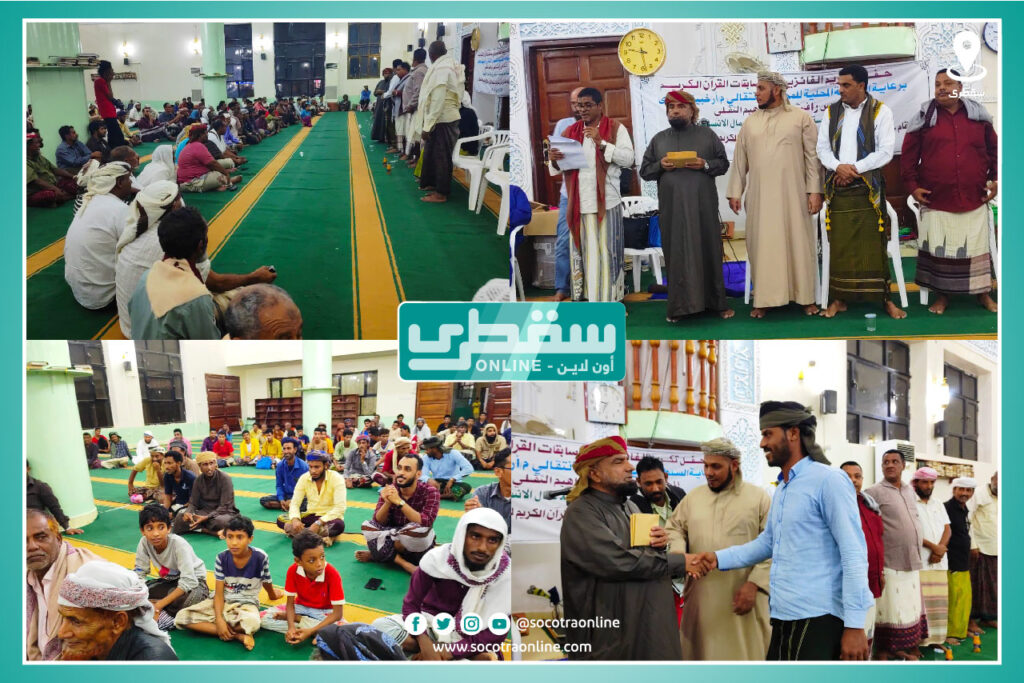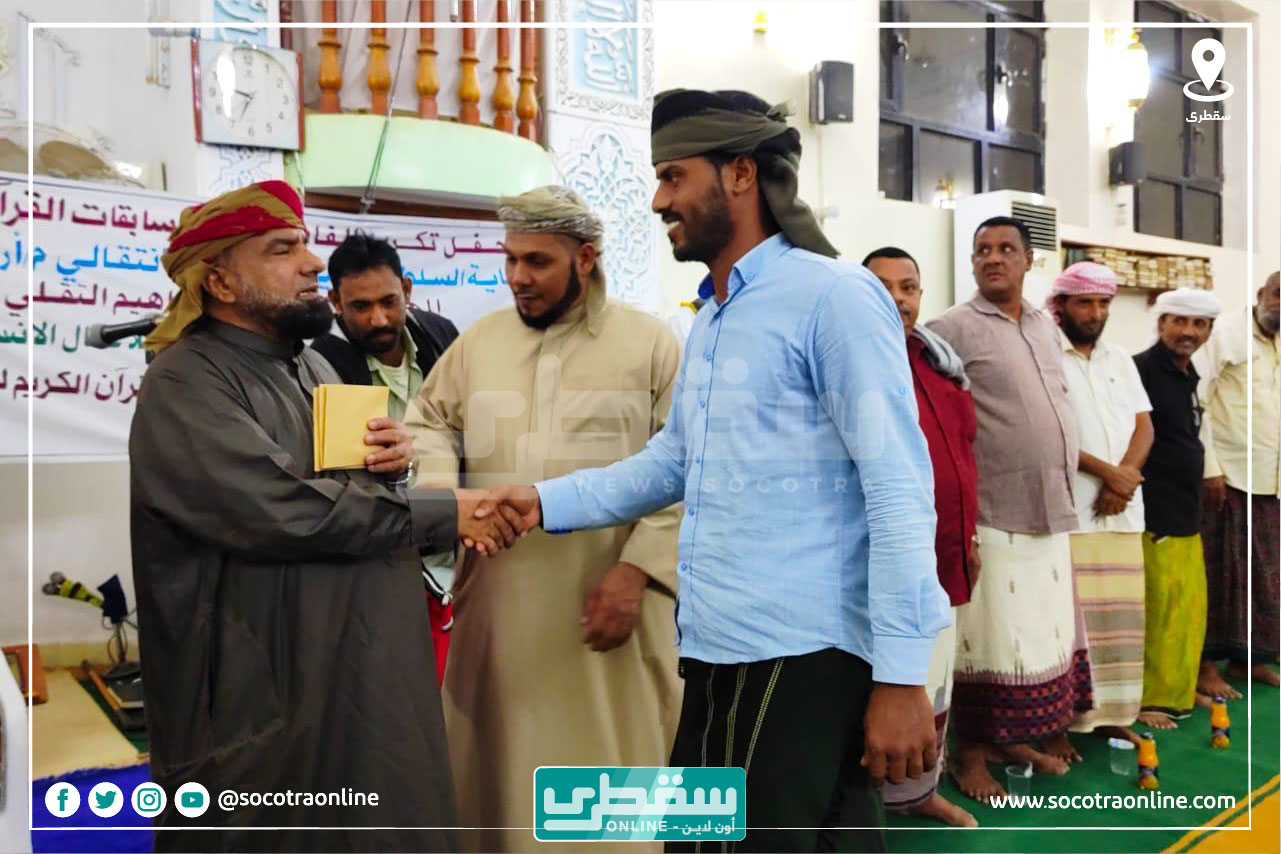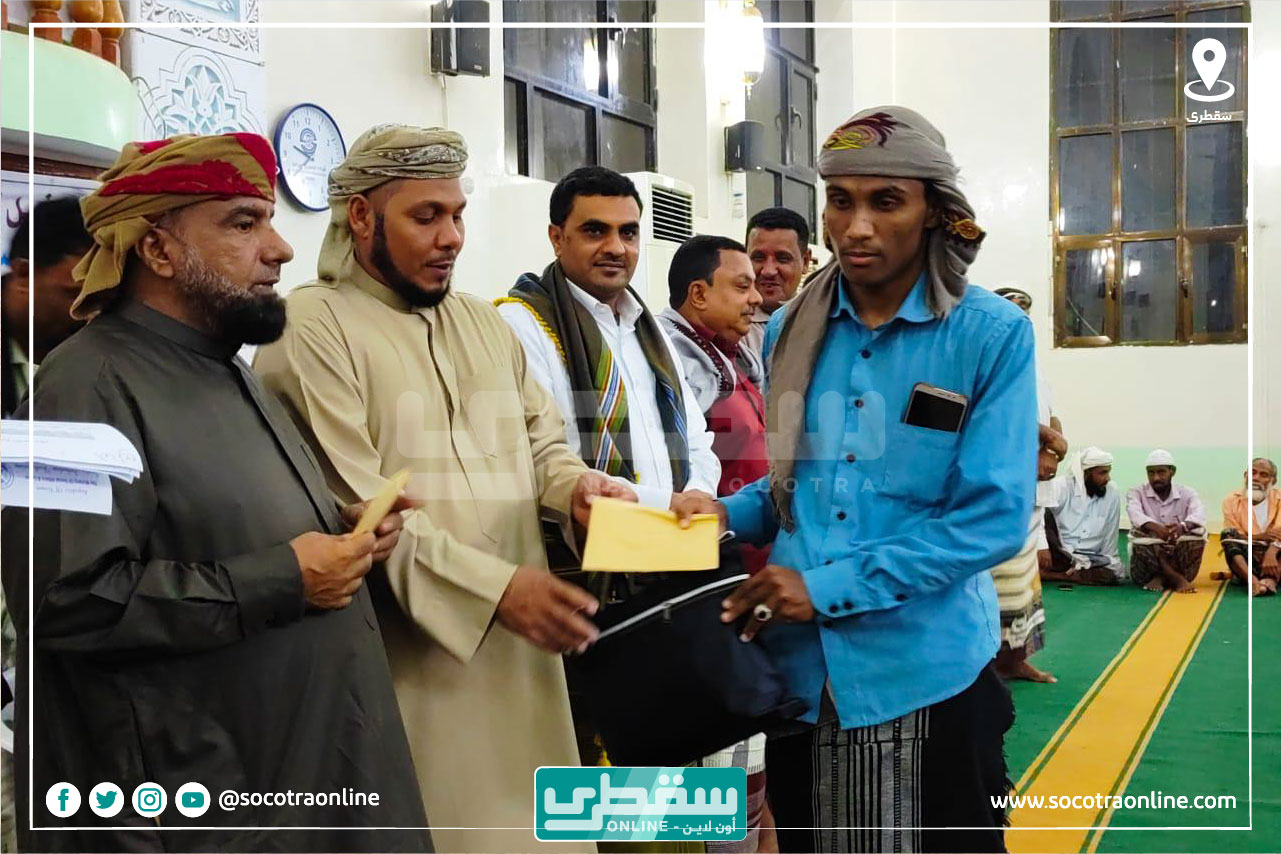April 28, 2022/ Socotra Online
Reporting and Photography: Ibrahim Youssef
Yesterday evening, Wednesday, at the Peace Mosque in Hadiboh, the Holy Quran competition, organized by the Khalifa bin Zayed Al Nahyan Foundation, was concluded.
In the third and final stage of the competition, 25 contestants in the five categories competed for the first places, and the final day of the competition witnessed honoring the contestants who won the first places at the five levels, in the presence of an official, sheikhs and parents.
In the honor, which was attended by the Brigadier General Staff Saleh Ali Saad, Deputy Governor, and in which Engineer Raafat Al-Thaqali, the head of the local leadership of the Southern Transitional Council of Socotra, praised the level at which the competition appeared in absorbing a large number of participants, which in turn encourages young men and girls to memorize the Holy Quran. Al-Thaqali appreciated the support of the brothers in the UAE and their interest in activating the activities of all sectors to serve the Socotra community.
Sheikh Abu Bakr Salem Ali, Imam of the Peace Mosque, said that the competition was distinguished with the participation of a group of young men and women from the island, and it is a good and great work for God because of its impact on encouraging young people to memorize the Holy Quran. He praised all the efforts made for the success of the competition and to show it with beautiful pictures.
In addition, Al-Thaqali and Saad, in the presence of the competition coordinator, Rashid Abbas, honored the contestants who won the first places in the financial prizes provided by the Khalifa bin Zayed Al Nahyan Foundation.
The competition was launched since the first week of the holy month of Ramadan and was divided into three stages, in which 63 contestants participated.
The honoring was attended by a number of the executive office leadership, sheikhs, tribal identifiers, social figures and parents of students.



